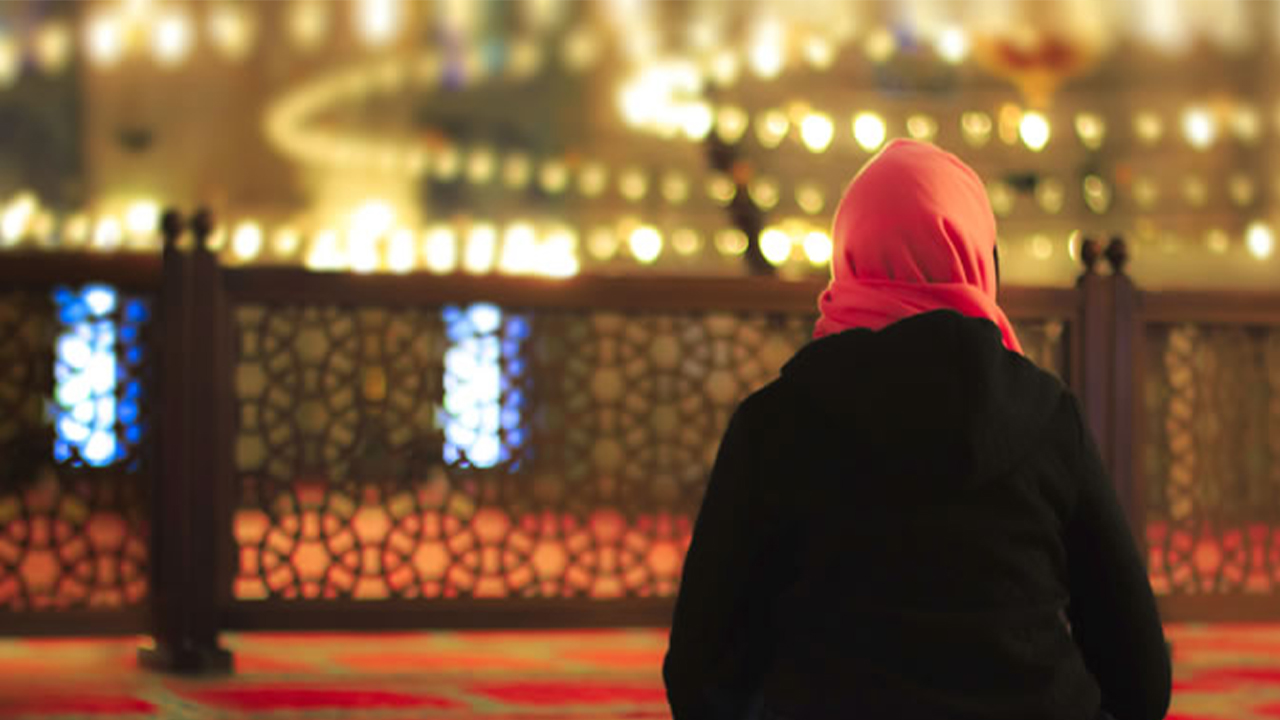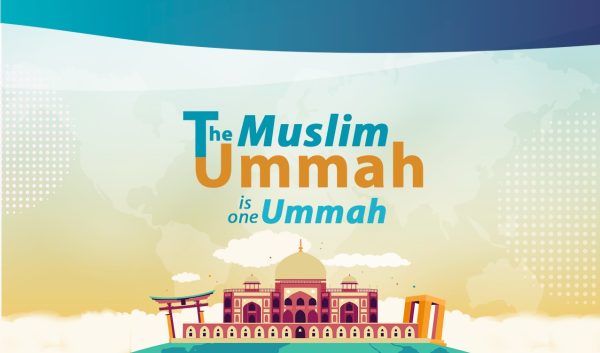Allah (عَزَّوَجَلَّ) has stated a principle in the Qur’an:
مَنْ عَمِلَ صَالِحًا مِّن ذَكَرٍ أَوْ أُنثَىٰ وَهُوَ مُؤْمِنٌ فَلَنُحْيِيَنَّهُ حَيَاةً طَيِّبَةً
Whoever does righteousness, whether male or female, while he is a believer – We will surely cause him to live a good life, and We will surely give them their reward [in the Hereafter according to the best of what they used to do.
[An-Nahl: 97]
Allah (عَزَّوَجَلَّ) has not differentiated between men and women with regards to deeds. Shariah and Islam marks no difference between the two genders in this regards and women stand shoulder to shoulder to men in equality.
During the month of Ramadan, all Muslims fast, stand up for night prayer, recite the Qur’an, beseech Allah (عَزَّوَجَلَّ) with their du’a, remember Him with their azkar, give sadaqat (charity) and do all kinds of good deeds to please their Creator.
Usually, men are able to avail of all the above as in Muslim countries, the hours of work are shortened and they are given time to take care of their worship. After their worship at the masjid, even when they return home, they have time to continue on doing more good deeds. Adversely, in Ramadan, we usually see women having more responsibilities with the preparation of iftar. This takes most of their time from afternoon till the time of breaking of fast. This occupation keeps on going till the time of suhur. Hence, we notice that women during Ramadan are unable to have the same opportunity of worship as do men.
Obviously, all the chores are tiring along with the fasting during the day. They are not able to do the qiyam as it is meant to be done this month. They are not able to spend time with the recitation of the Qur’an much as they would like to. They cannot sit and just make dua as their responsibilities do not permit them.
Here is a suggestion to the men in-charge. The men in the family need to be able to provide the women at home the time to do all those above-mentioned forms of worship that are the essence of this month. The women ought to be allowed to have time to sit with their ibadah and please their Rabb.
The one deserving of this forgiveness are both men as well as women in this month of Ramadan which is the month of forgiveness. The Muslim men need to realize this and create space at home for such an allowance for their women. This means that the ladies are made free from their core responsibilities of the house so they can have extra time for their worship. Men can make do with meals that are less elaborate. It is not necessary to fill the table up with a variety of food as that variety requires time and effort in preparation. With this Allah (عَزَّوَجَلَّ) will put barakah In Sha’Allah.
On another hand, we see households where there is domestic staff to help the women in the kitchen for cooking and around the house for cleaning. Such women have ample time to do their worship. But sadly, it is seen that many of such women spend their time shopping and resting as opposed to utilizing this free time to make the most of each minute of the days of Ramadan. Eid shopping is what is the priority for many women. They may have started out coming to the masjid in the beginning of the month, yet as the last days of Ramadan and the most important days of Ramadan approach, where Laylatul Qadr can be found, they decide to utilize that time in the malls.
This by far, is a sad state of affairs. A person becomes heedless of their Creator, is oblivious to their forgiveness, drowned in the worldly affair and this becomes the way to their destruction. Women are strongly advised that if they are relieved of their duties of the house, they fruitfully spend this time and not waste it in irrelevant activities.
Allah (عَزَّوَجَلَّ) has given a recipe to Jannah for the women in a brief manner. It is said in a hadith, Abu Huraira (RadiAllahu Anhu) reported the Prophet ﷺ said:
إذا صلَّت المرأةُ خمسَها وصامت شهرَها وحفِظت فرجَها وأطاعت زوجَها قيل لها ادخُلي الجنَّةَ من أيِّ أبوابِ الجنَّةِ شئتِ
“If a woman prays her five prayers, fasts her month of Ramadan, guards her chastity, and obeys her husband, she will enter Paradise from any gate she wishes.”
(Ṣaḥīḥ Ibn Ḥibbān: 4252)
We learn from this hadith that the way to Jannah has been simplified for the women. Yet, we see the women of our society not taking benefit of this ease. They are more absorbed with a life that is opposite to this. Not all women are of course in the above-mentioned category. There are yet, those women who are able to fulfill their tasks as well as take time out for personal worship.
I would like to conclude with one last point. A piece of paper was discovered with hand-written text from amongst the collection of Sahih Bukhari. This was apparently written by a woman. She wrote out the text and signed it off with the following:
“Please forgive me in case my writing was unclear or was short of anything that you were unable to understand. Please forgive me for this as I compiled these hadith out for Sahih Bukhari and in the other hand I carried my young child. This may have caused my writing to not be as perfect as it could have been otherwise.”
Such were the women of the days who were dedicated mothers as well as dedicated to pleasing their Rabb. They were mindful of what was required of them as servants of Allah (عَزَّوَجَلَّ). They served their deen well and were ahead of others in their service.
May Allah (عَزَّوَجَلَّ) forgive us all in this month. (Aameen)











